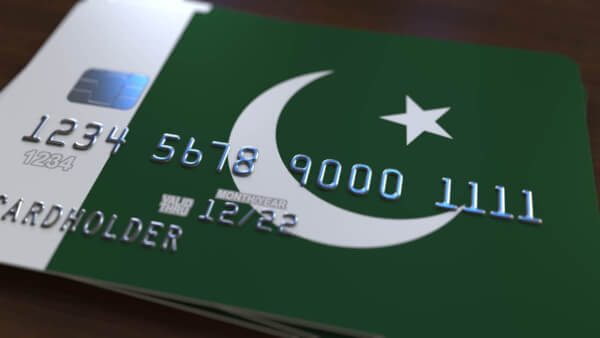A list of the top banks in Singapore
A list of the top banks in Singapore, including DBS, OCBC, UOB, Maybank, Bank of Singapore, HSBC and Citibank.

Decided to move to Ireland from the UK? Great choice. From lively pubs to beautiful scenery, a vibrant culture and bustling, friendly cities, Ireland truly has something for everyone.
As a bonus, opening a bank account is relatively straightforward, which is one less thing to worry about while you plan your move. Read on to find out how it all works, and how to get started. We’ll run through everything you need to know, including what documents you should have ready and a look at the Irish banks you can choose from.
We’ll also show you an alternative to a bank for managing your money in Ireland from the money services provider Wise. Open a Wise account online and you can send and receive payments in 40+ currencies, including both EUR and GBP. There’s even a Wise card for spending like a local all over the world.
Please see the Terms of Use for your region or visit Wise fees & pricing for the most up-to-date information on pricing and fees.
It is possible to open a bank account in Ireland as a non-resident, but it depends on the bank or provider. Some banks offer non-resident accounts, including Bank of Ireland and Allied Irish Banks (AIB).
You still need to provide some key documents, which we’ll look at below. There’s a chance that you’ll have to visit Ireland in person, although some Irish banks now offer online and remote account opening.
You’ll usually need two documents to open an Irish bank account:¹
A really important point to note is that for any proof of address documents, you must provide certified copies.¹ This is a copy which has been branded and signed by a chartered or certified public accountant, public notary, solicitor, elected government official or embassy/consular staff member.
If you’re applying for an Irish bank account as a non-resident, you may be asked to provide two proof of address documents.
Some banks may also ask for other documents, such as employment or income details. If unsure what you’ll need, take a look on the bank’s website or get in touch to find out more.
| 📚 Read more: How to get an Irish citizenship coming from the UK? |
|---|
The methods available to open an Irish bank account as a non-resident will vary between banks and providers. But to give you an example, here’s how it works at Allied Irish Banks (AIB).
If you haven’t bought your Irish property yet so don’t have a local address, you can fill in the contact form on the AIB website. A customer services representative will be in touch to walk you through the process. You’ll need to provide certified copies of your documents, and visit a branch in person to verify your identity within 30 days of the account being opened.²
If you’re moving to Ireland from the UK, you may find it more convenient to open your new Irish bank account in advance. It’ll be one less thing to sort out once you arrive. And the option to open it online makes it even easier.
But is it possible for UK citizens who aren’t yet living in Ireland? Unfortunately, it’s unlikely that you’ll be able to open an Irish bank account online from the UK, without visiting a branch in Ireland in person at least once.
| 📚 Read more: How to open a European bank account online? |
|---|

There are a number of banks to choose from in Ireland, and we’ll run through a handful of the biggest and most popular here.
Bank of Ireland is the oldest and largest bank in Ireland. It also has one of the largest branch and ATM networks in the country. So if you’re looking for a trusted, respected name for everyday banking, BOI is a good choice.
You can apply for a personal account online, but only if you’re an Irish resident.
The bank offers a range of accounts and services, including current and savings accounts, mortgages, credit cards, loans and insurance. Its current account offer is particularly good, as there are specialist options for children, young people, students and older customers. It’s also possible to customise a current account package with extra products if you need them.
AIB is one of Ireland’s most popular banks, founded in 1966 and still going strong today. It has a wide ATM and branch network, and a great digital/app banking service. If you’re an Irish resident, you can open a current account on the AIB app in a matter of minutes. So if you’re someone who likes to bank on the move with your smartphone, AIB is a winner.
The bank offers a huge range of products and services, including current and savings accounts, mortgages, loans, investments, life insurance, credit cards, pensions and much more.
And like Bank of Ireland, AIB also has lots of account options for students, graduates and older people. There’s even a Sterling account if you need to manage your money in GBP.
Part of the Irish financial services company Permanent TSB group, the bank has its roots dating back to 1884 when it was founded as the Irish Temperance Permanent Benefit Building Society.
Today, the bank offers personal and business banking services. Its main current account is the Explore Account, another top pick for people looking for user-friendly digital banking. This digital account has a fee, but offers rewards such as cashback on bills.
In addition, Permanent TSB has a Teen Account, Student Account and Basic Payment Account.
You can also access other financial services with the bank, including mortgages, insurance and savings accounts.
There’s only a limited number of traditional banks to choose from in Ireland, but there are other options. This includes online-only banks, digital solutions and alternative providers. Let’s take a look at a few of the most popular:
A number of banks in Ireland have maintenance fees, charged monthly or quarterly. The cheapest of these with a bank is AIB, which charges €4.50 a quarter (so €18 a year) for its main current account. Other banks charge between €4-€6 a month for their current accounts.⁴
We’ll look at Irish bank fees in more detail next, so you can weigh up all the different costs involved.
Now we come to the crucial question - how much does it cost to have and use a bank account in Ireland?
We’ve already looked at monthly/quarterly maintenance fees, which range from €4-€6 a month (with the exception of AIB, which charges €4.50 a quarter for its current account).⁴
But there are other costs to consider, such as fees for ATM withdrawals and international payments.
A number of Irish banks charge fees for ATM withdrawals, which range from around €0.35 to €0.60 per withdrawal. A handful don’t charge you for taking out cash though, including Bank of Ireland, EBS and PTSB.⁴
Planning to use your Irish bank account to send money overseas? Perhaps you’ve retired in Ireland but have family in the UK, or have bills to cover for a holiday property in Europe, the US or even Australia.
Whichever is the case, you’ll need to check out how much it costs to make international payments with your new Irish bank.
It varies between providers, but you can expect a fee of around €15-€20 for non-euro payments sent outside of the EU.⁵ As Ireland is part of the EU, it may be possible to make payments in EUR within the SEPA zone of Europe for free⁵ - although it depends on the bank.
There’s also the exchange rate to consider. Banks tend to add a mark-up to the mid-market exchange rate,⁵ which can add to the costs of making an international payment.
Need to manage your money between the UK and Ireland, or regularly send money overseas? A bank may not be the best or cheapest option.
But luckily, there is a faster, easier and money-saving alternative available from the money transfer services provider Wise. It’s not a bank, but offers many similar features and services - and it’s all fully digital for your convenience.
Open a Wise account online and you can send money worldwide in 40+ currencies in just a few clicks. Fees are low and transparent, and you’ll always know exactly what you’re paying upfront.
Best of all, you’ll always get mid-market exchange rates, which are usually a lot better than banks can offer. This means that more of your money reaches your recipient.
Please see the Terms of Use for your region or visit Wise fees & pricing for the most up-to-date information on pricing and fees.
Sources used for this article:
Sources checked on 15-Dec-2023.
*Please see terms of use and product availability for your region or visit Wise fees and pricing for the most up to date pricing and fee information.
This publication is provided for general information purposes and does not constitute legal, tax or other professional advice from Wise Payments Limited or its subsidiaries and its affiliates, and it is not intended as a substitute for obtaining advice from a financial advisor or any other professional.
We make no representations, warranties or guarantees, whether expressed or implied, that the content in the publication is accurate, complete or up to date.

A list of the top banks in Singapore, including DBS, OCBC, UOB, Maybank, Bank of Singapore, HSBC and Citibank.

A list of the top banks in Pakistan, including National Bank of Pakistan, Habib Bank, United Bank, MCB Bank and Allied Bank.

A list of the top banks in the US, including JPMorgan Chase, Bank of America, Wells Fargo, Citibank and U.S. Bank.

A list of the top banks in Andorra, including Andbank, Creand and MoraBanc.

A list of the top banks in New Zealand, including ANZ, ASB, Westpac, BNZ, Kiwibank and TSB Bank.

A helpful guide to the Trading 212 Multi-Currency Account, including what it is, how it works, fees and more.